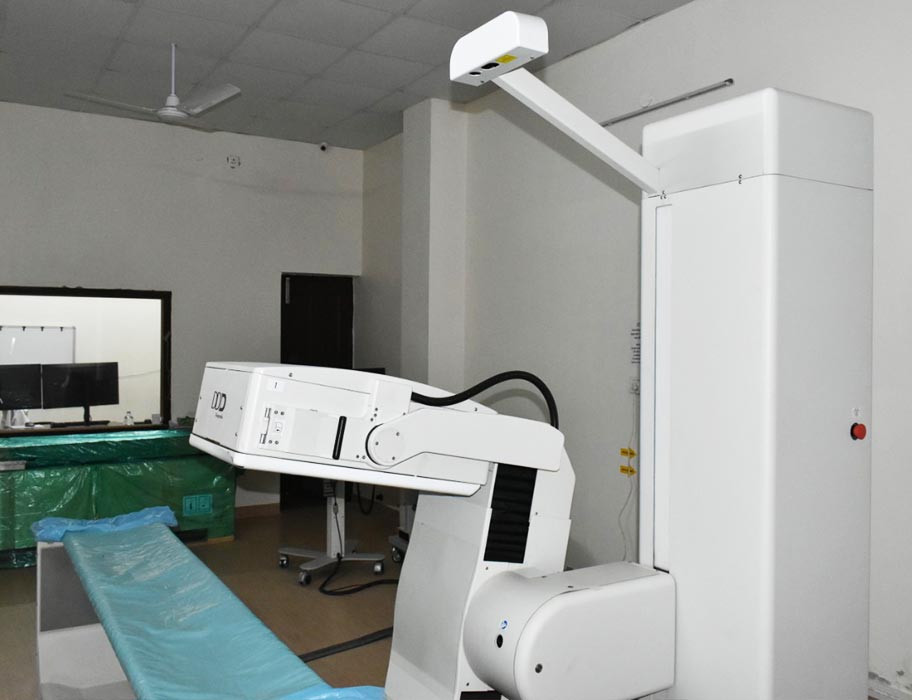
Information About Radionuclide Therapy
What is Nuclear Medicine Therapy?
- Nuclear medicine therapy is based on administering radioactive substances (radiopharmaceuticals) to patient. It delivers radiation to tumorous lesions to cure, mitigate or control the disease.
- These therapies are also called targeted radionuclide therapies because radioactive substances specifically target diseased cells and only kill the cancerous cells.
What are the diseases where Nuclear medicine therapies are effective?
At present nuclear medicine therapies are used for benign as well malignant diseases.
- Thyroid diseases: - Radioiodine therapy can be used as first choice of treatment.
- Thyroid cancer: Radioiodine therapy completely cures patient in most of cases.
- Neuroendocrine cancers: Lutetium DOTATATE therapy.
- Prostate cancer: Highly advanced Lutetium PSMA therapy, it is very effective for treating even advanced cancers where hormonal therapy and radiotherapy have failed.
- Bony metastasis pain palliation: Samarium therapy is very effective for pain relief even when strong pain killers have stopped working.
How is it different from external radiotherapy and chemotherapy?
Both chemotherapy and radiotherapy are commonly used treatment for cancer. However, nuclear medicine therapies score better than these.
- Safer with less side effects: Both chemotherapy and nuclear medicine therapy are systemic therapies, however these radioactive substances specifically target diseased cells, thus reducing potential side effects and sparing normal healthy tissue.
- Precise, personalized and targeted: Disease is first visualized by PET CT radiotracers and then same molecular probes are paired with other radioisotopes which destroy cancer cells. So nuclear medicine therapies can be personalized for each patient and leads to higher effectiveness.
- Better monitoring by PET-CT/ SPECT: Following delivery of these therapeutic agents, imaging can be performed to study and measure the effectiveness of the therapy. This can be used to better treatment.
- Limitations: Nuclear medicine therapies are newer therapies which are available at present for few cancers. Newer therapies are emerging very fast and will be available in future for multiple cancers.

